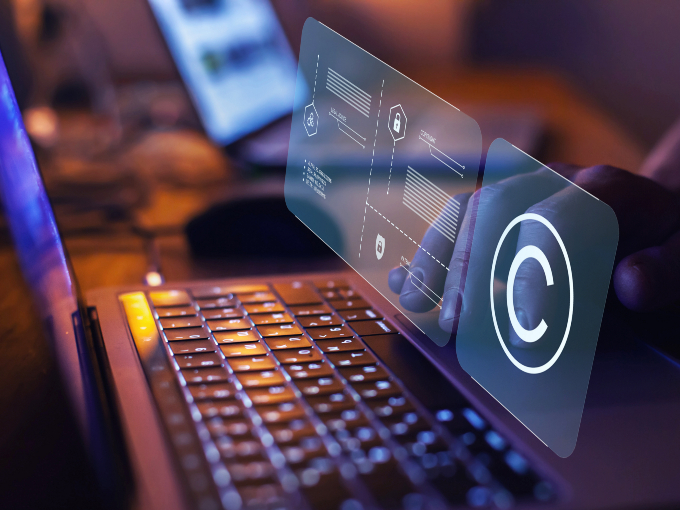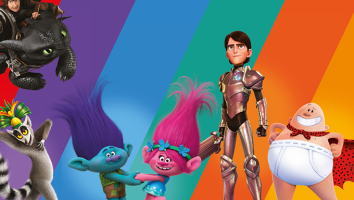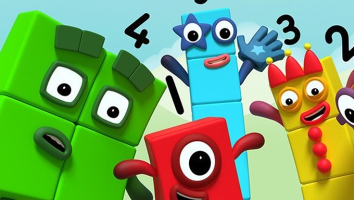This week, we’ll be showcasing a series of features from Kidscreen‘s June/July issue that are all about AI. To kick things off, Evan Baily outlines what kids producers thinking about using the tech need to know about copyright. And tomorrow, we’ll get into how AI is being incorporated into our industry’s workflows to automate production, inform decisions and engage audiences.
Generative AI tools like Midjourney and ChatGPT have been available for less than a year, but they’re already changing our conception of authorship. With just a few keystrokes, anyone can generate character designs, plot lines, lyrics and melodies—with no experience, talent or skill required.
But are generative AI tools, which are “trained” on troves of data that include copyrighted works, infringing copyrights? Who owns what AIs create? And is it even ownable at all?
It’ll be years before we have definitive answers. But for now, there are things you should know, and steps you can take to ensure that AI isn’t jeopardizing your rights to your creations—or tainting any rights you acquire.
A QUICK COPYRIGHT PRIMER
Copyright is the exclusive right to copy, distribute, display or perform TV series, films and other works of authorship. Exclusivity is the key to making copyrights valuable. Only the owner of a copyright has the right to create—and authorize the creation of—derivative works such as licensed products, sequels and spinoffs.
Under US law, for a work to be copyrightable, there are two essential requirements: It must be original, and it must be “fixed in a tangible medium of expression”—i.e., not just an idea, but something concrete, like a script, drawing or film.
As soon as you create a work, you own the copyright; registration isn’t required for ownership, but it is required in the US prior to filing an infringement suit, and it’s recommended in many other countries.
When AI comes into the picture, two categories of new questions arise. I’ll refer to them as “backward-looking” and “forward-looking.”
BACKWARD-LOOKING
The backward-looking questions are: Have AIs “trained” on copyrighted material already infringed copyrights? And if so, is new material they create irreparably compromised? The short answer is that we don’t know yet.
Courts will decide, based on technical legal considerations, and legislatures may weigh in, too. Getty Images, for one, believes its rights have been infringed. It’s suing Stability AI, the creators of image generator Stable Diffusion, for including its copyrighted images in training data without permission.
Separately, three visual artists are suing Stability AI, Midjourney and DeviantArt, contending that they are “21st-century collage tools that violate the rights of millions of artists.” Other artists have teamed up with computer scientists to develop Glaze, a DRM system of sorts. According to its creators, Glaze “enables artists to apply ‘style cloaks’ to their art before sharing it online,” hampering AI’s ability to mimic their work.
The European parliament’s Artificial Intelligence Act is expected to require developers of generative AI tools to disclose whether they included copyrighted material in training data, which, according to The Financial Times, would allow copyright owners to demand payment.
Meanwhile, Adobe is sidestepping these issues entirely. In March, it launched Firefly, an AI image generator trained solely on public domain works and those to which Adobe has the rights.
As you can see, the landscape is extremely dynamic. And it’s changing daily.
FORWARD-LOOKING
The forward-looking question is: Can new works created with AI be copyrighted?
As of March 16, 2023, the US Copyright Office (USCO) requires any use of AI to be disclosed. Its policy guidance is that works created entirely by AI are not copyrightable, because human authorship is non-negotiable. Works containing a mix of human and AI contributions may be copyrightable, but AI elements will be excluded from the copyright.
The 2022 comic book Zarya of the Dawn by Kris Kashtanova offers a key case study. Initially, the USCO approved Kashtanova’s application for copyright, but when it learned (via the artist’s social media) that Kashtanova had used Midjourney to generate the images, it rescinded the registration and granted a new, narrower copyright covering only the text and the “arrangement of the images,” not the images themselves.
OK…SO NOW WHAT?
None of this is settled law, and it won’t be until federal courts rule definitively, or the US Congress passes new legislation. So, in the meantime, what best practices should creators and producers follow?
For guidance, I turned to Tom Selz, a retired entertainment and copyright attorney and founding partner of Frankfurt Kurnit Klein & Selz, who now consults in the industry. (Full disclosure: He represented me from 2008 to 2021.)
Selz advises that if your creative process includes AI, there’s no way to be sure that you’ll be able to copyright all elements of a finished work, or that you’ll be free and clear of infringement claims brought by those whose copyrighted material was included in AI training data.
That uncertainty potentially jeopardizes your projects at every stage—including your ability to raise money (financiers generally won’t invest in content that can’t be copyrighted); distribute finished programming (distributors require you to represent and warrant that the rights you’re granting them are free of third-party claims); create derivative works; and even secure E&O insurance.
Copyright ownership by local producers is also a prerequisite for some tax credit schemes, so if they are a pillar of your financing, AI could inject significant uncertainty.
Selz stresses that even if you believe that your use of AI is OK, and that copyright will eventually be granted, the inability to definitively secure your rights can cause significant problems. The costs of defending a copyright claim can be huge, in both time and money.
The safest route for now is not to use AI for anything creatively foundational to your content, including character designs, characterization or story material. If those elements are uncopyrightable, you won’t be able to grant exclusive rights to a single frame of content that incorporates them, let alone pursue L&M deals.
In addition, your agreements with employees and independent contractors should require them to represent and warrant that their work product does not incorporate AI material. You’re required to disclose any use of AI, so it should only be used at your express direction.
Finally, before making an R&D investment in generative AI, carefully weigh the potential fallout if AI-originated contributions are excluded from copyright.
On a more positive note, using AI-generated material for inspiration (e.g., mood boards) is probably fine if you’re not incorporating it into finished product.
Needless to say, the issues here are complex—and changing at a blistering pace—so seek legal counsel before making any decisions about the use of AI. And given that laws vary from country to country, you’ll need to keep an eye on developing copyright and IP doctrine globally.
Remember, too, that lawyers and operators don’t always see eye to eye. Producers are constantly under tremendous pressure to move faster and cut costs. Will some make a calculated choice to sacrifice the copyrightability of certain content elements (such as non-acting props or background art) to save time and money? No doubt. And others will push the envelope more aggressively.
On behalf of generative humans, thanks for reading this far. Next up, a topic that hits close to home for me as the son of a painter, grandson of a comic book artist, dad of a writer and comedian, and as a storyteller myself: What are the ethical considerations around using AI in the creative process? I’m excited to explore this and hear your feedback!
Evan Baily a TV/film producer and showrunner who also consults for entertainment, media, consumer products and tech companies. Please send feedback and ideas to ai@conbail.com.
This story originally appeared in Kidscreen‘s June/July 2023 magazine issue.



























